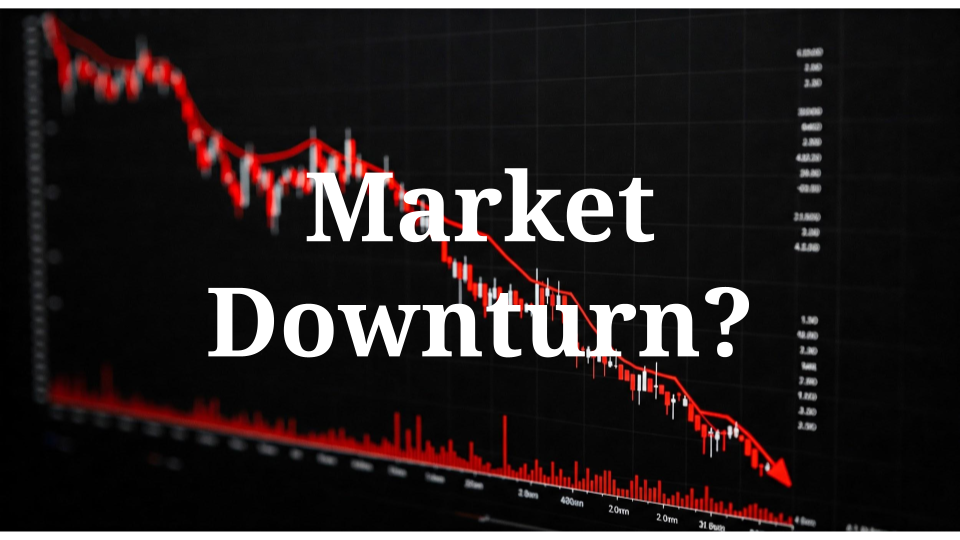If the stock market is crashing! What should I do?
/One of the most important rules when it comes to investing is to buy low and sell high. And yet, some people end up getting nervous when the stock market is “crashing” and end up selling low. Then, after the market recovers, they regain confidence and end up buying high. Letting one’s emotions control investing decisions is a recipe for poor returns.
You may see on the news or social media people claim that they know what the market is going to do in the future. Often people say these things to try and get more viewership and clicks instead of trying to give sound financial advice. But recall the adage that “even a broken clock is right twice a day”. Don’t be surprised when someone’s lucky guess happens to be accurate from time to time. Instead, focus on taking financial advice from a fiduciary, someone who is legally required to act in your best interest and not their own.
So what should you do during a volatile market? Without knowing the details of your financial situation, I can’t provide specific advice. However, I would like to review some data from the past to help you gain a better understanding of the markets and consider a “market crash” as a potential opportunity to buy. This is looking back at previous returns so make sure to note that past performance is no guarantee of future results.
In the world of finance, there are two different types of markets: a bull market and a bear market. A bull market is a time frame when the economy is expanding and stock prices are increasing, while a bear market is when the economy is experiencing a recession and stock prices are decreasing. As you can see from the chart below, bull markets typically last longer than bear markets and produce greater returns compared to the losses of a bear market. The U.S. has been in a bull market for a while so when it transitions to a bear market or recession that will not be out of the norm when looking back in history.
Since bull markets typically last longer than bear markets, the odds that someone makes money investing in the stock market could increase significantly the longer they leave their money invested. The chart below shows the probability of someone having positive returns investing in the S&P 500 index since 1937. If someone only invested for 1 day they had a 53.4% probability of having positive returns but if they stayed invested for 10 years they had a 97.3% probability of having positive returns! I prefer the much higher probability of higher returns by not trying to time the market.
The chart below shows the 15 largest single-day percentage losses for the S&P 500 since 1960. If you look at the right side you will see in the one year later column that only one time was the market negative one year post the corresponding single-day percentage loss. That was back in 2008 during the global financial crisis. Instead of becoming nervous about large single-day losses reassure yourself that more than likely the market will recover within one year.
Think about it this way, I LOVE Heath candy bars for obvious reasons. If I bought them as a snack and then Meijer sent me a coupon for 50% off, I wouldn’t get upset that I had just paid full price. I’d go and buy more. Selling stock when the market plummets would be a lot like me selling my Heath candy bars for 50% less than what I paid for them vs. buying more at such a great price!
Hopefully, this has helped you gain a better perspective on making investing decisions. I believe that having a longer-term outlook can help you keep emotions in check and not get as nervous/scared when you see people on the news and social media talking about a stock market crash.
Just like gym workouts are more productive with a trainer, folks often are better able to keep their emotions in check by having a talented financial advisor on their team. If you don’t have a financial plan established now might be as good of a time as any to get that put in place. I would be happy to meet with you to discuss your financial plan.
“We simply attempt to be fearful when others are greedy and to be greedy when others are fearful”
Fiduciary Financial Advisors, LLC is a registered investment adviser and does not give legal or tax advice. Information presented is for educational purposes only and does not intend to make an offer or solicitation for the sale or purchase of any securities. The information contained herein has been obtained from a third party source which is believed to be reliable but is subject to correction for error. Investments involve risk and are not guaranteed. Past performance is not a guarantee or representation of future results.
















